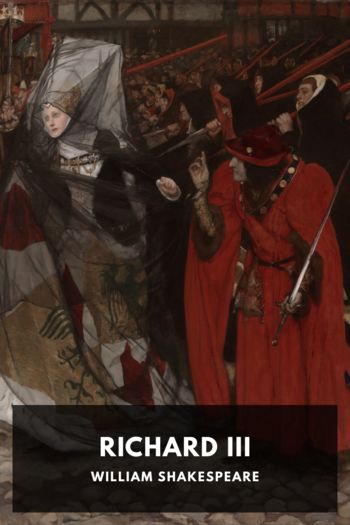The Beetle Richard Marsh (most romantic novels TXT) 📖

- Author: Richard Marsh
Book online «The Beetle Richard Marsh (most romantic novels TXT) 📖». Author Richard Marsh
“My experience tells me, Mr. Lessingham, that no one ever does come to me until they are compelled. In that respect I am regarded as something worse even than a medical man.”
A wintry smile flitted across his features—it was clear that he regarded me as a good deal worse than a medical man. Presently he began to tell me one of the most remarkable tales which even I had heard. As he proceeded I understood how strong, and how natural, had been his desire for reticence. On the mere score of credibility he must have greatly preferred to have kept his own counsel. For my part I own, unreservedly, that I should have deemed the tale incredible had it been told me by Tom, Dick, or Harry, instead of by Paul Lessingham.
XXXIII What Came of Looking Through a LatticeHe began in accents which halted not a little. By degrees his voice grew firmer. Words came from him with greater fluency.
“I am not yet forty. So when I tell you that twenty years ago I was a mere youth I am stating what is a sufficiently obvious truth. It is twenty years ago since the events of which I am going to speak transpired.
“I lost both my parents when I was quite a lad, and by their death I was left in a position in which I was, to an unusual extent in one so young, my own master. I was ever of a rambling turn of mind, and when, at the mature age of eighteen, I left school, I decided that I should learn more from travel than from sojourn at a university. So, since there was no one to say me nay, instead of going either to Oxford or Cambridge, I went abroad. After a few months I found myself in Egypt—I was down with fever at Shepheard’s Hotel in Cairo. I had caught it by drinking polluted water during an excursion with some Bedouins to Palmyra.
“When the fever had left me I went out one night into the town in search of amusement. I went, unaccompanied, into the native quarter, not a wise thing to do, especially at night, but at eighteen one is not always wise, and I was weary of the monotony of the sickroom, and eager for something which had in it a spice of adventure. I found myself in a street which I have reason to believe is no longer existing. It had a French name, and was called the Rue de Rabagas—I saw the name on the corner as I turned into it, and it has left an impress on the tablets of my memory which is never likely to be obliterated.
“It was a narrow street, and, of course, a dirty one, ill-lit, and, apparently, at the moment of my appearance, deserted. I had gone, perhaps, halfway down its tortuous length, blundering more than once into the kennel, wondering what fantastic whim had brought me into such unsavoury quarters, and what would happen to me if, as seemed extremely possible, I lost my way. On a sudden my ears were saluted by sounds which proceeded from a house which I was passing—sounds of music and of singing.
“I paused. I stood awhile to listen.
“There was an open window on my right, which was screened by latticed blinds. From the room which was behind these blinds the sounds were coming. Someone was singing, accompanied by an instrument resembling a guitar—singing uncommonly well.”
Mr. Lessingham stopped. A stream of recollection seemed to come flooding over him. A dreamy look came into his eyes.
“I remember it all as clearly as if it were yesterday. How it all comes back—the dirty street, the evil smells, the imperfect light, the girl’s voice filling all at once the air. It was a girl’s voice—full, and round, and sweet; an organ seldom met with, especially in such a place as that. She sang a little chansonnette, which, just then, half Europe was humming—it occurred in an opera which they were acting at one of the Boulevard theatres—La P’tite Voyageuse. The effect, coming so unexpectedly, was startling. I stood and heard her to an end.
“Inspired by I know not what impulse of curiosity, when the song was finished, I moved one of the lattice blinds a little aside, so as to enable me to get a glimpse of the singer. I found myself looking into what seemed to be a sort of café—one of those places which are found all over the Continent, in which women sing in order to attract custom. There was a low platform at one end of the room, and on it were seated three women. One of them had evidently just been accompanying her own song—she still had an instrument of music in her hands, and was striking a few idle notes. The other two had been acting as audience. They were attired in the fantastic apparel which the women who are found in such places generally wear. An old woman was sitting knitting in a corner, whom I took to be the inevitable patronne. With the exception of these four the place was empty.
“They must have heard me touch the lattice, or seen it moving, for no sooner did I glance within than the three pairs of eyes on the platform were raised and fixed on mine. The old woman in the corner alone showed no consciousness of my neighbourhood. We eyed one another in silence for a second or two. Then the girl with the harp—the instrument she was manipulating proved to be fashioned more like a harp than a guitar—called out to me,
“ ‘Entrez, monsieur!—Soye le bienvenu!’
“I was a little tired. Rather curious as to whereabouts I was—the place struck





Comments (0)